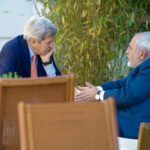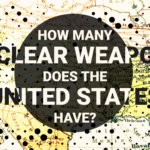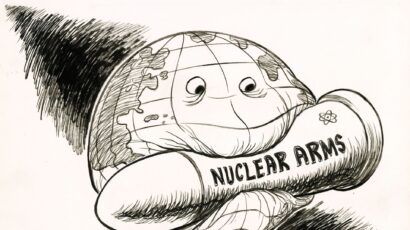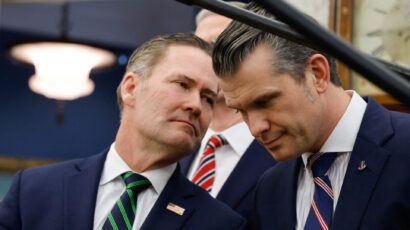Why vote for nuclear disarmament?
By Kennette Benedict | December 10, 2013
Most efforts to achieve a world free of nuclear weapons happen at the highest levels of government and international organizations. But while heads of state appear to have the power to reduce nuclear arsenals, they need help. In democracies, such help comes from citizens who express their preferences at the polls. High-level meetings and treaties are important, but to bring about irreversible reductions in nuclear stockpiles will also require a politics that brings ordinary voters on board.
They and their legislators need lots of reasons to choose nuclear disarmament. Here are three to get started.
Disarmament will prevent catastrophic accidents. Nuclear weapons are very dangerous whether or not they are actually used in war. In the November/December issue of the Bulletin of the Atomic Scientists, Nate Jones describes how a routine NATO military exercise in 1983 led the Soviets to place their nuclear arsenals on high alert because they believed the United States was about to attack. Knowledge of the misperceptions, accidents, and near-misses that he and writers like Eric Schlosser describe—incidents that could have resulted in nuclear exchanges of devastating proportions—would be enough to make any sensible person understand that the risks posed by these weapons far outweigh any purported benefits in an era of relative peace among major powers.
Disarmament will save money.At a time of fiscal restraint, the savings from reducing US arsenals would be significant, even when taking into account the costs of dismantlement. The United States spends $30 to $35 billion per year to maintain its current deployed nuclear force of some 1,500 weapons, and only about $6 billion per year for dismantling and cleanup under the New Strategic Arms Reduction Treaty with Russia. If Washington continues to reduce nuclear arsenals, the net savings would add up to real money over time.
If the United States does achieve major savings through weapons cuts, there will of course be congressional debate about where the funds should go. The trick will be to ensure that the money used to build and maintain the nuclear weapons complex in the past is used to build civilian public infrastructure in the future. Such expenditures could mean more efficient transportation systems; repairs to buildings, roads, and schools; and funding for research and development of civilian technologies that contribute to durable economic growth. Confidence that the savings will be sensibly redirected will encourage skilled workers, businesses, and local governments to sign on to nuclear disarmament.
Disarmament will make the US economy stronger. One problem with the cost-saving argument is that weapons programs, whether nuclear or conventional, have in the past been sold as jobs programs. Unions and contractors in nearly every congressional district press to keep the employment and industrial base that weapons production provides. In the short run, and especially at times of high unemployment, it is true that government spending on weapons and military personnel provides jobs. After the Depression in the 1930s, World War II spending contributed to an economic recovery.
At times of low unemployment, though, as during the Vietnam War years, military spending draws money away from the civilian sector. The diversion of investment into military production leaves a society with fewer resources for housing, agriculture, and education. It also hampers production of the myriad goods and services that change hands in a thriving economy. Public sector investment, as well as production in the civilian economy, are engines of long-term growth.
Weapons of war, on the other hand, demolish wealth. They are made only to be destroyed, while at the same time destroying another country’s population, industrial infrastructure, and agricultural capacity.
Spending on nuclear weapons, especially in light of the end of the Cold War, is particularly self-defeating. One of the greatest military threats that we face today—from extremists with no organized armed forces—cannot be deterred with nuclear weapons. That’s why former US military commanders recommend a drastic reduction in arsenals. If the United States continues to spend on nuclear weapons that can’t be used and the military does not want, it will be doing so at the expense of a healthy civilian economy. As we now know, a similar course of action in the Soviet Union resulted in an upheaval that brought down the Berlin Wall and led to a revolt against the government of Mikhail Gorbachev. In the United States it could lead to a lower standard of living for Americans, slow growth, and widespread public discontent. In a paradox that may not be easy to grasp at first, spending on nuclear weapons leads to weakness, not strength.
The truth is that the nuclear weapons complex—including research and design; bomb making; manufacturing delivery vehicles; situating and maintaining missiles; and storage and clean-up of toxic materials—is so integrated into the fabric of the US economy that nuclear weapons have become normalized as a fact of life. Yet to make the world more secure, democracies stronger, and economies more prosperous, citizens of the United States and Russia will want to disentangle their societies from nuclear weapons. They have plenty of reasons to embrace disarmament—even beyond the terrible possibility of nuclear war.
Together, we make the world safer.
The Bulletin elevates expert voices above the noise. But as an independent nonprofit organization, our operations depend on the support of readers like you. Help us continue to deliver quality journalism that holds leaders accountable. Your support of our work at any level is important. In return, we promise our coverage will be understandable, influential, vigilant, solution-oriented, and fair-minded. Together we can make a difference.
Topics: Columnists, Nuclear Weapons















